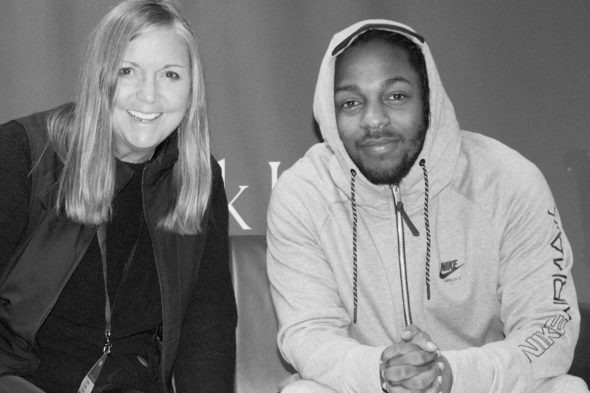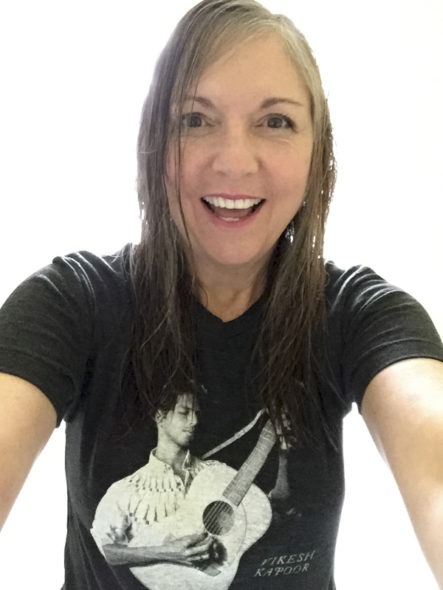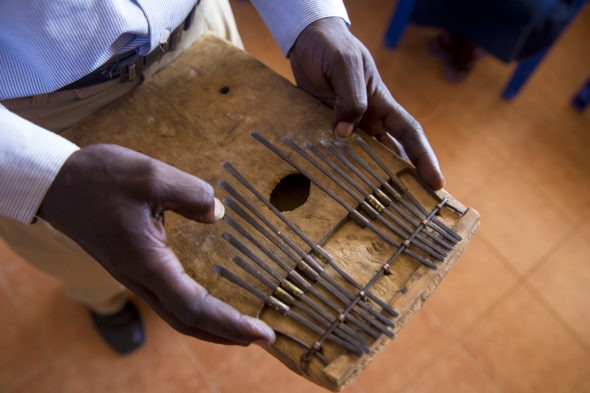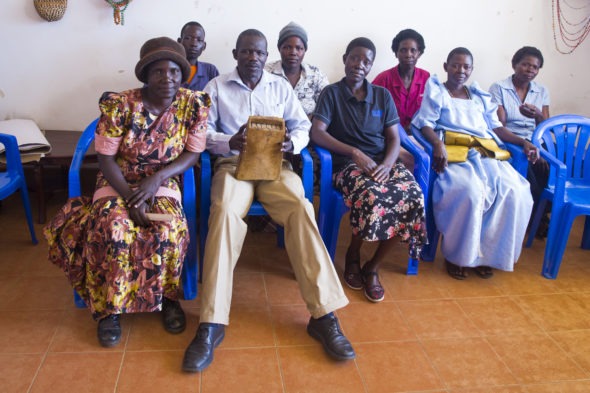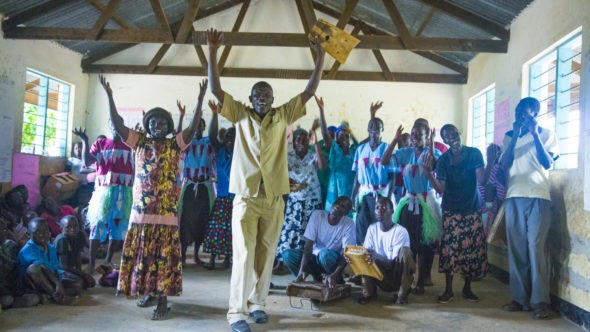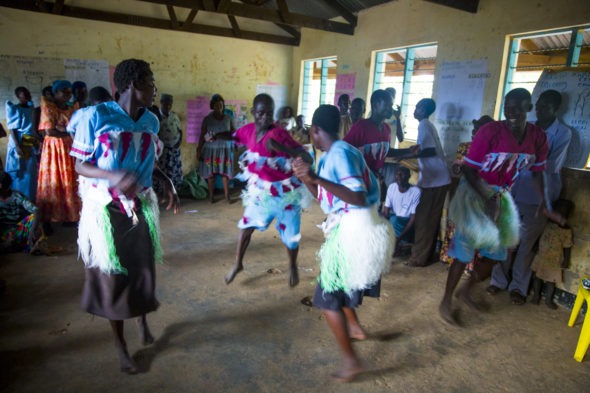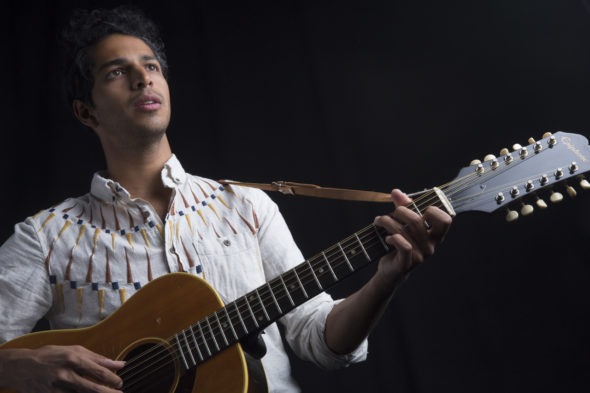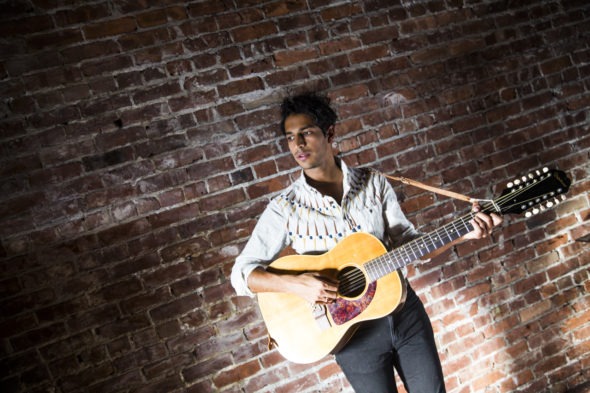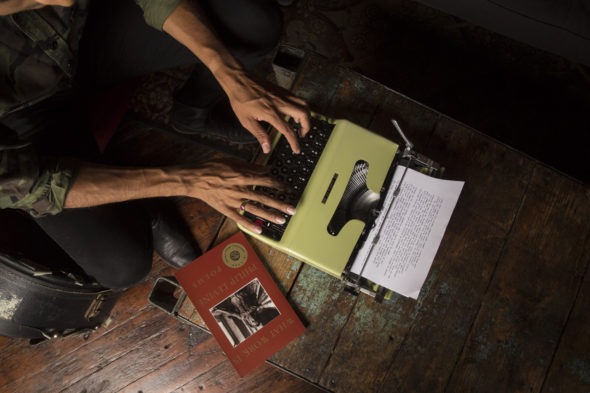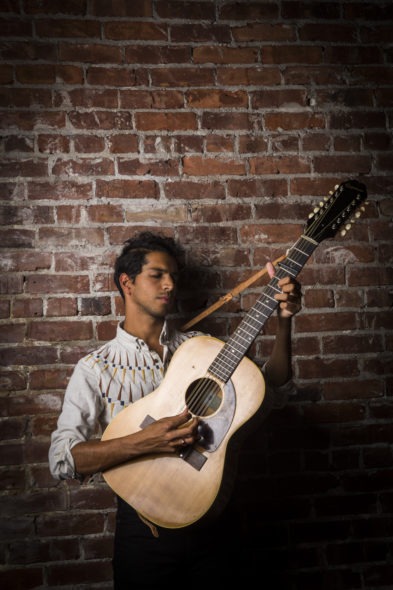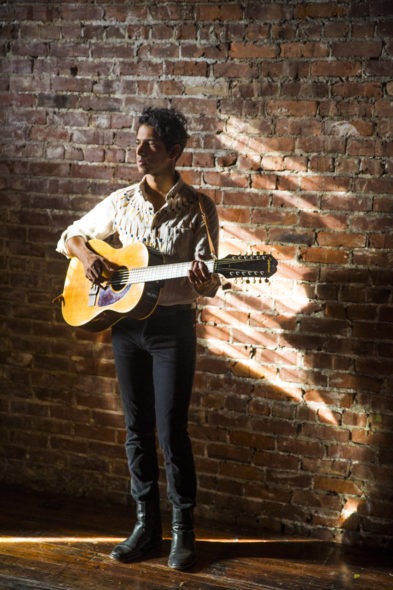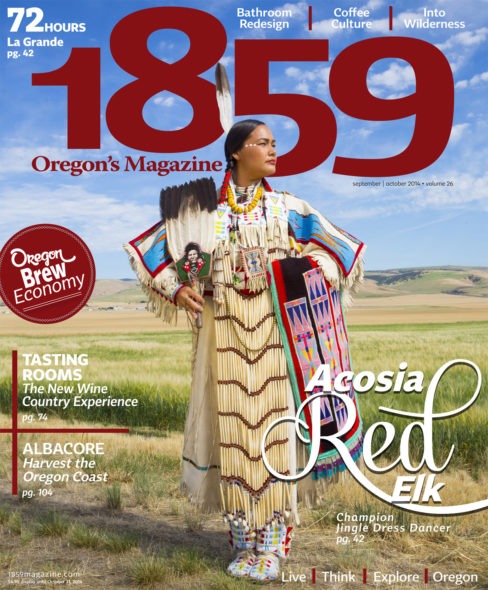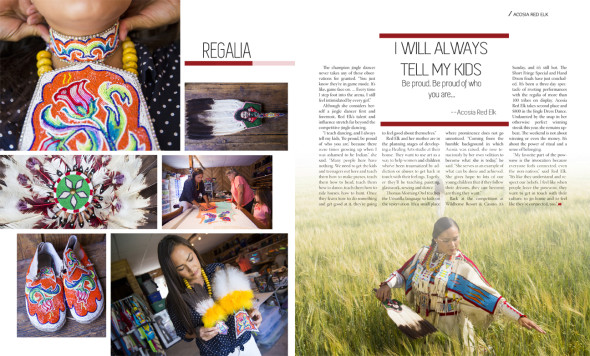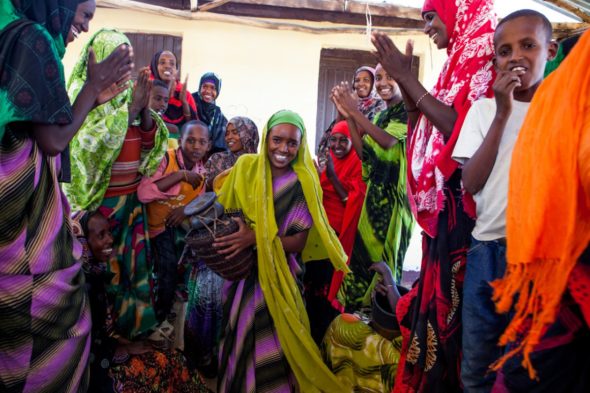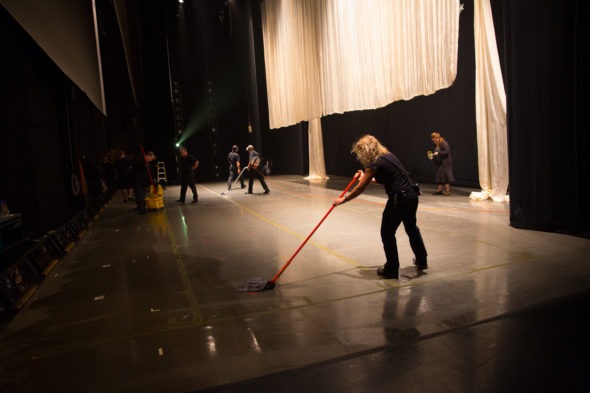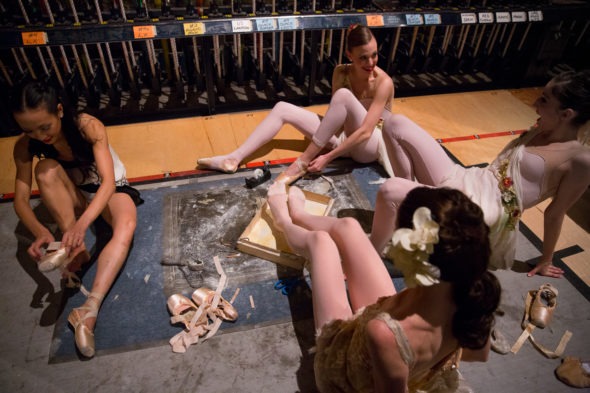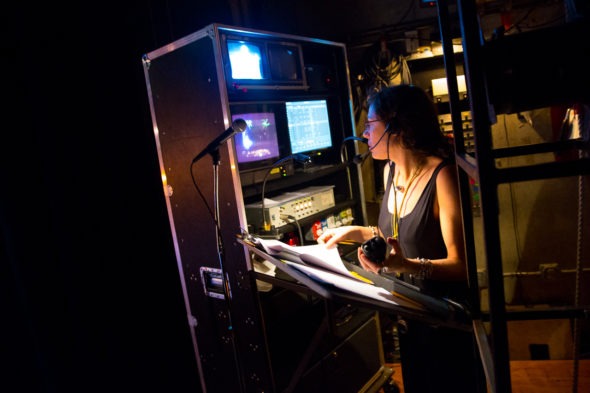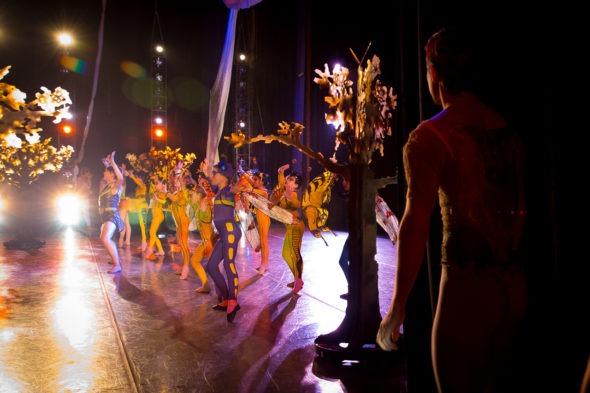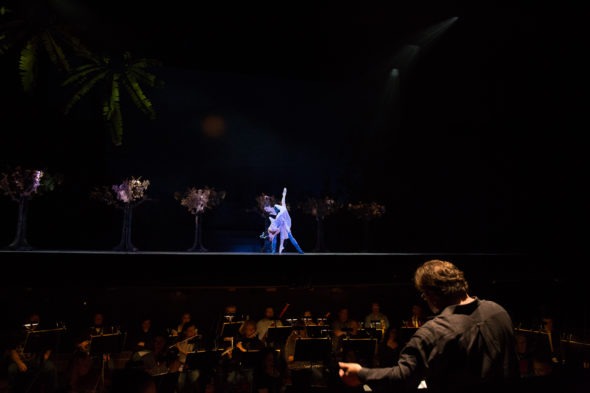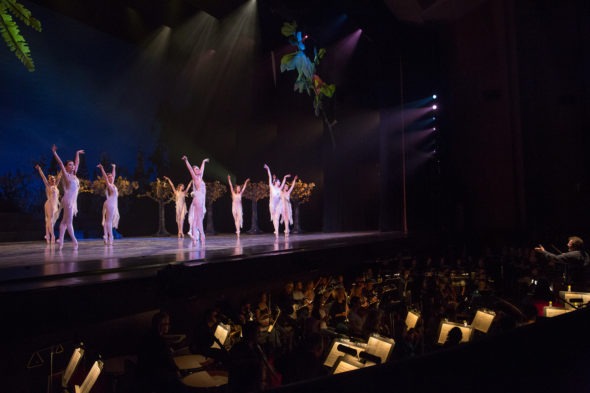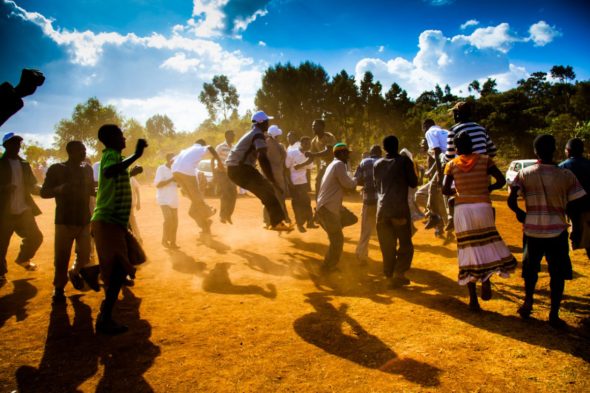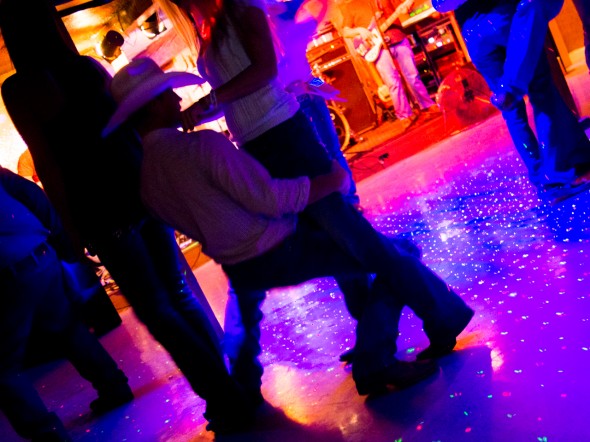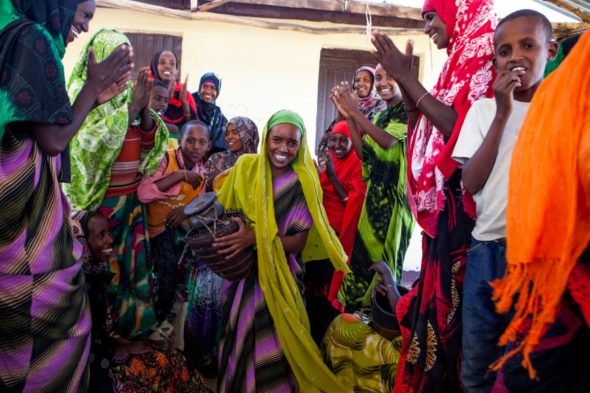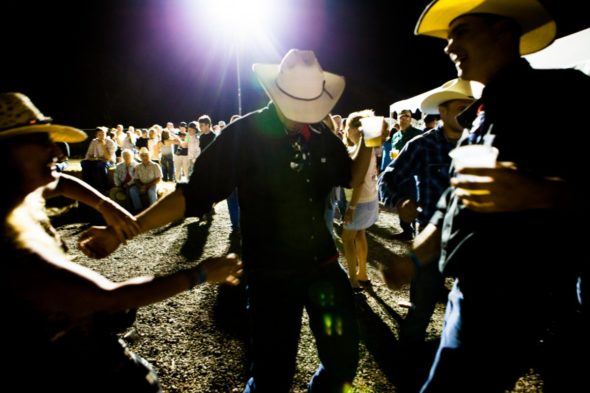Music plays an important part of my daily quest for creative flow and Kendrick Lamar currently tops the list. It was a humbling honor to be able to meet him in person in Amsterdam and thank him for his lyrics, his musical expression, and for a shared reverence of Ethiopia.
Category Archives: Music
Oregon Ballet Theatre: Dancer Portraits
I love when I get to be inside the walls of Oregon Ballet Theatre’s building and watch the heat and fury that arises from the dancers as they practice. It takes enormous focus and energy to perfect those twists and turns and leaps, and to be able to witness trial after trial until they reach their aspirations is a wondrous sight.
I was there to make dancer portraits, and even though they came right from brutal practice to sit before my camera, they each faced the lens with authentic passion in their eyes.
Altered Views: Lessons From Africa
For the past several months, I had the honor of traveling to Africa to document various projects for some really outstanding organizations that are performing tireless and devoted work in Ethiopia, Tanzania and Uganda. I welcomed these assignments as an offering to alter my lifestyle and challenge my perspectives, but more importantly, I wanted to set aside all other commitments to create imagery that might make a difference to people who are struggling.
Now back home as I reflect upon the past several months, I realize that I am going through reverse cultural shock. What once brought joy to me is altered. I still love meals from Portland’s creative restaurant scene and the idea of wearing a pair of sassy boots, but this trip has made me reach ever so fervently for how we touch the earth…and each other.
My days in Africa were spent in heated debate, exchanging innovative ideas, feeling the shock of human peril, learning about living a truly nomadic lifestyle. and dancing until I collapsed. My heart was so full at times that I had to shut down, fold up, and sit alone in a room to come down from this life high. And sometimes I needed a rest from the effects of my own physical and mental curiosity.
Africa is where we began. Lessons abound from the moment a person steps onto the Motherland. I have many stories to tell, but I will start by highlighting a few of the assignments that sparked a renewal of my mindset.
SABAHAR, Addis Ababa, Ethiopia
I started my journey by working on a fashion shoot for Sabahar, a collective of some of the finest weavers in Ethiopia. Their scarves are woven with super soft traditional Ethiopian cotton and silk spun by silkworms raised on their property. Most importantly, they are devoted to fair employment practices. Their Ethiopian staff are paid a great wage while working in a beautiful and supportive environment. Happy faces were seen throughout the garden-filled compound.
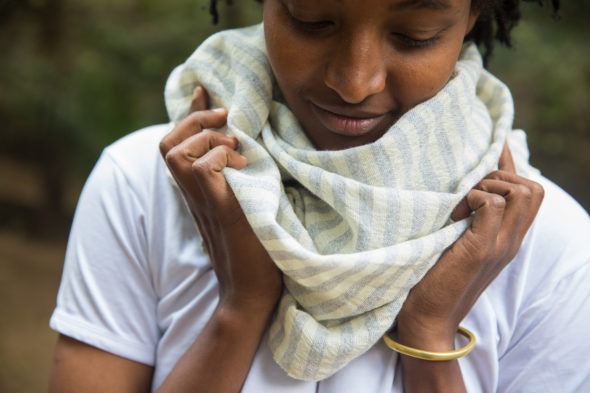
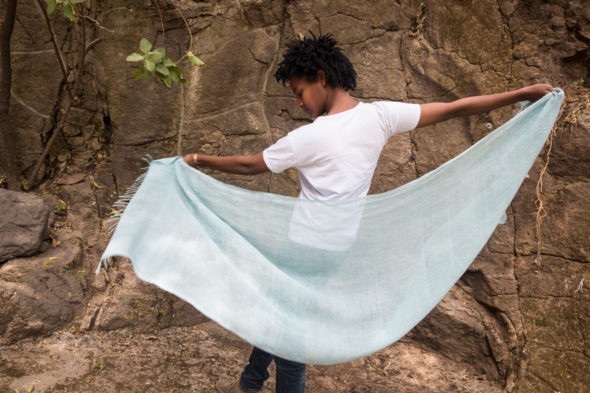
Returning to Uganda seared my soul. Seeing friends I had met earlier in the year and getting to work more closely with TERREWODE (a reintergration center for fistula survivors) was an educating and heart-touching experience. A team volunteered services to teach goat milk soap-making to villagers and TERREWODE staff, advise on the development of packaging, develop a video about the soap-making process and document the way music, dance and drama are used to educate others about fistula.
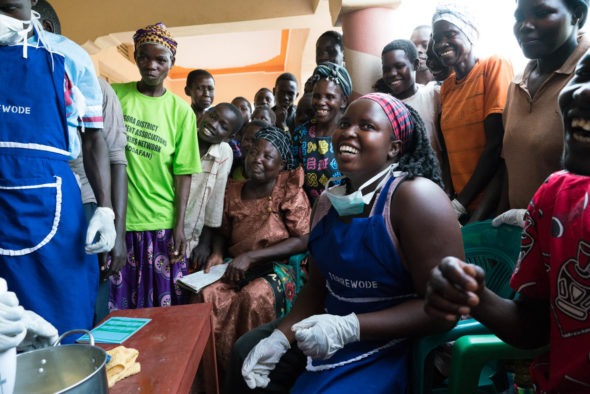
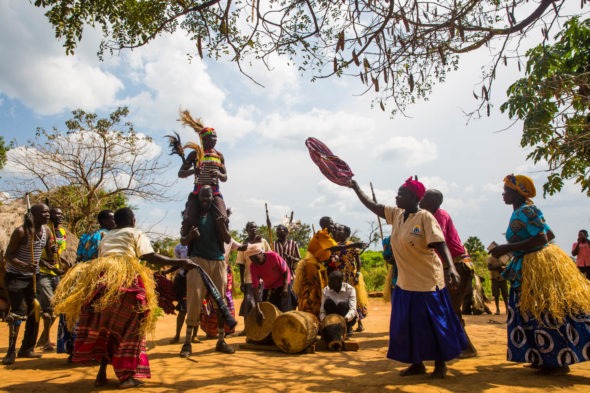
OREGON HEALTH & SCIENCES UNIVERSITY, Portland, Oregon, USA and Mekele, Ethiopia
Some people say that a “silent epidemic” of prolapse conditions are occurring across the globe. Many women suffer from this debilitating healthcare concern while continuing to perform their physically demanding work despite the constant severe pain they experience. Medical staff from Portland joined their expert hands to repair prolapses in many women in the northern Tigray area of Ethiopia. In addition, they trained other Ethiopian medical staff how to perform this life-altering operation.

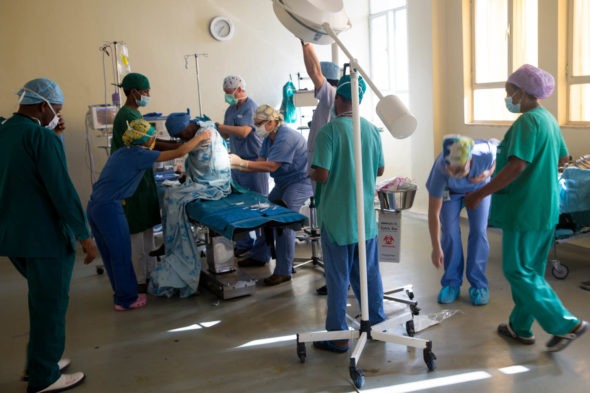
DIGNITY PERIOD, Mekele, Ethiopia
Who would have thought that lack of education and support for menstruating girls and women would have such a dire effect on so many aspects of a female’s life? Lack of menstrual supplies and running water, coupled with little education about the natural occurrence and importance of menstrual cycles, has a direct correlation with how a girl can stay in school and the effects of self esteem for all women. Freweini Mebrahtu responded to this need and created a factory called Mariam Seba (named after her daughter) that makes reusable sanitary napkins and employs women. Dignity Period provides access to sanitary pads and educates students about a female body’s natural process. They also are in the process of researching latrine and water sources for schools to enable hygienic practices. In addition, they are researching the impact of this intervention on the lives of young school girls.
Watch a short video that uses my still images and video I captured while in Mekele, Ethiopia here.
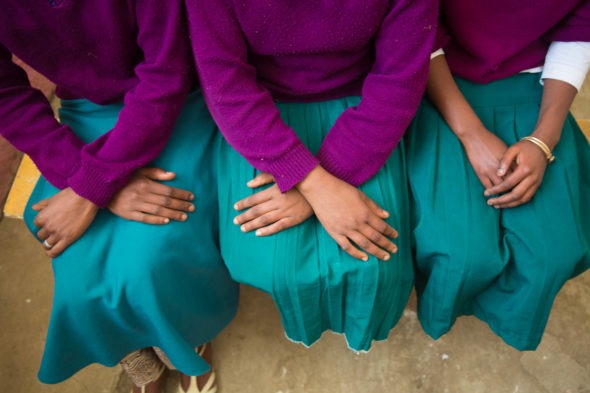
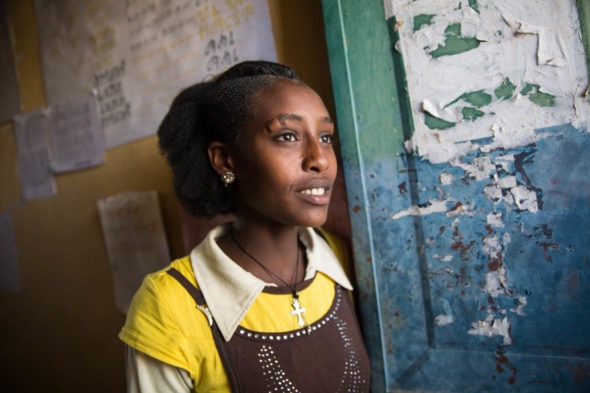
THE MEKELE BLIND SCHOOL, Mekele, Ethiopia
I am haunted in a very good and profound way from the way the students and other staff got to know me while I visited The Mekele Blind School. I was petted, nibbled, pinched and truly moved by the students, and learned many new ways of emphasizing one sense over the other. It was astonishing to see the children running freely and holding each other so closely when they were together. If only we all could experience each other more so in this manner. This school is in dire need of many improvements but they march on inspiring within each student the confidence that they can do anything they wish.
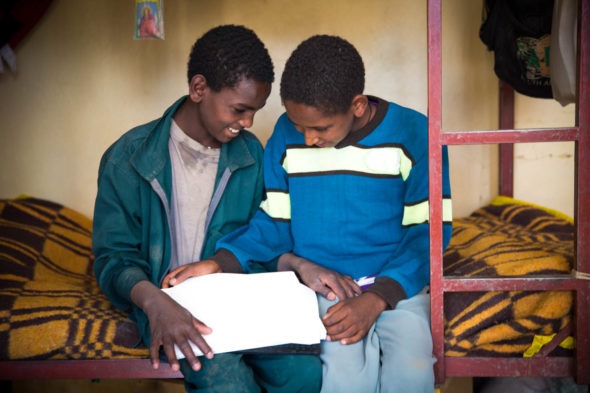
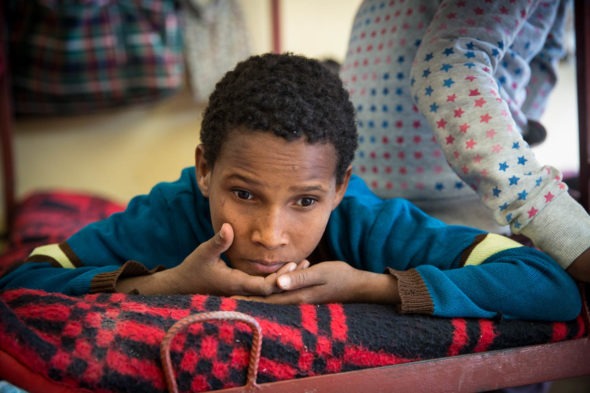
TIGRAY ASSOCIATION ON INTELLECTUAL DISABILITIES, Mekele, Ethiopia
Every so often something will shake my foundation and enrage my soul. On this trip, I found out that girls/women with mental illness are often targeted for rape because some men believe these females are unwanted and therefore free from HIV or other diseases. The afflicted female needs to have 24/7 watch over her in fear she might exit the home compound without someone accompanying her. The Tigray Association on Intellectual Disabilities, founded by a sister of an intellectually challenged girl, helps to nurture and provide activities for both women and men, as well as keep them safe.
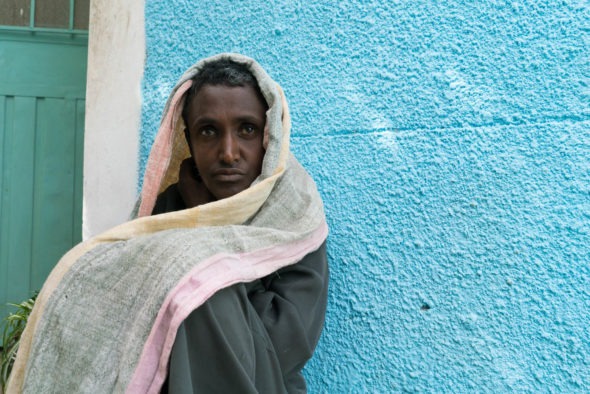
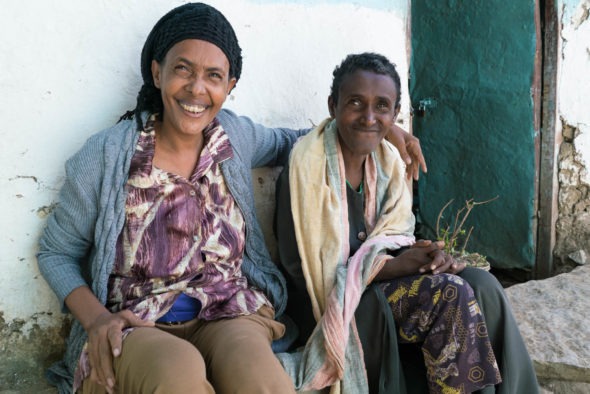
HOPE ENTERPRISES SCHOOL, Addis Ababa, Ethiopia
Imagine living in the most desolate of situations at a poverty level that is at the lowest shanty structure level. Someone knocks on your door, and they ask many questions about your children that are living there. After a lengthy interview process, your family has been selected to be a part of the Hope Enterprise School in Addis Ababa, Ethiopia. Your child will be supported from the time they enter school through high school graduation and they will be assisted until they are placed in a job. This is just one of the many remarkable projects that are funded by Hope Enterprises.
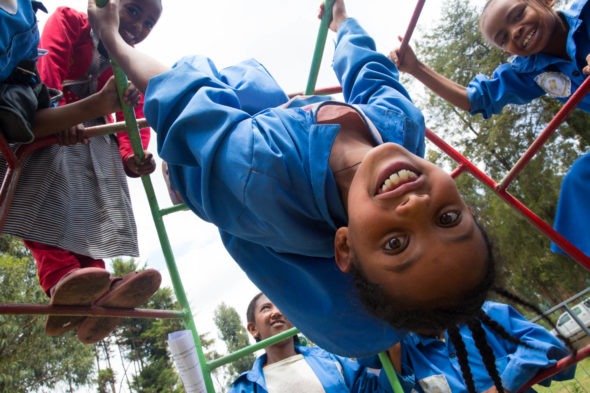
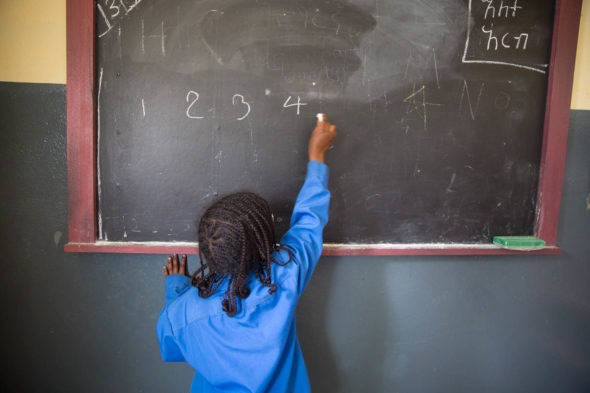
STREET CHILDREN’S BREAKFAST, Addis Ababa, Ethiopia
I rarely feel the devastation of having great pangs of hunger. I can grab a cracker and know that a meal will be had soon. When I am very hungry, my senses get mixed up and I get irritable. For a young boy faced with living on the streets of Addis Ababa, Ethiopia, a breakfast in the morning can mean he can live a day of staving off hunger and not having to hustle or steal for food. Hope Enterprises feeds street boys bread, banana and milk each morning.

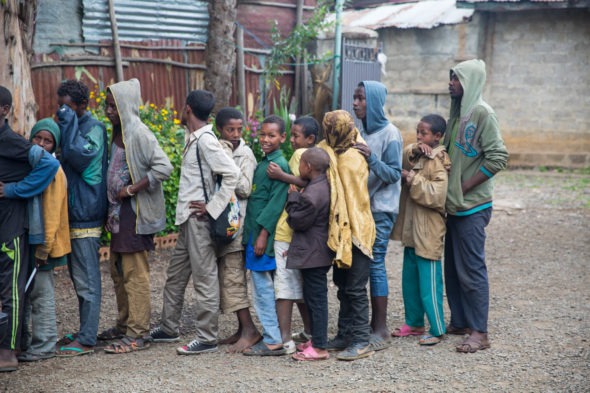
MATERNITY AFRICA, Arusha, Tanzania
Fistula is a devastating condition that affects thousands of women and the families they nurture and support. Dr. Andrew Browning is one of the best fistula surgeons in the world and after working for many years with the Hamlin Fistula Hospital, Andrew now is based in Arusha, Tanzania where he practices and teaches on a global level. Maternity Africa supports his efforts and is in the process of building a new hospital which will ensure that best practices are in place. They also are firmly devoted to fistula prevention by working with midwives to educate villagers about the dire consequences of obstructed labor.
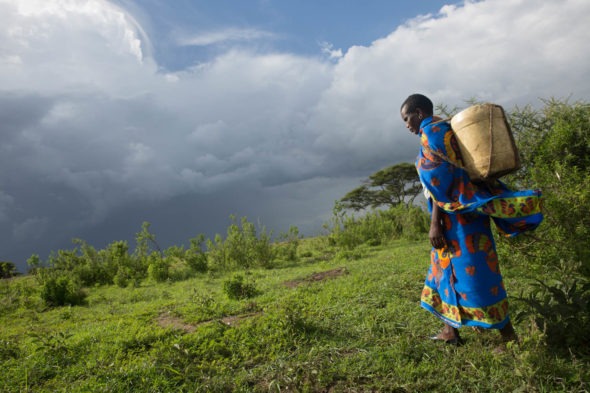
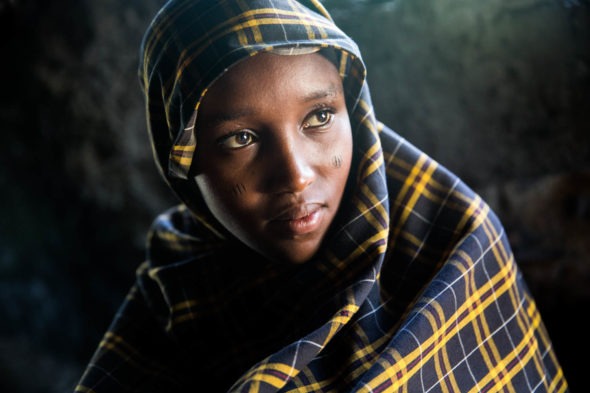
A Rally For Maternal Care in Uganda
He stands tall, towering over the ladies, yet his gestures are gentle. His smile comes quickly as he expresses his love for these women. We are here to listen to his song, hear his words and see dancers hop, shake and spin to the music he makes, all in the name of educating others about the devastating effects of fistula.
The women file into the room, their colorful dresses accentuating their inherent cheerful spirits. They are all fistula survivors, and they are here to help spread joy and encouragement to those who are still suffering from this condition. They have been here before, and they know the isolating despair they felt when they were leaking urine and feces down their own legs.
But today is a new day. They have been healed by the hand of a skillful surgeon and they are now participating in reintegration skill training at Terrewode, their programming funded by the Worldwide Fistula Fund, in the beautiful Soroti region of Uganda. Sewing, jewelry and basket making, bread baking: the products of all of these activities can be sold in markets and and is a way for these women to get back on their feet and feel productive once again. They are here to learn these skills, and also participate in a performance for us.
The African man suffers a generalized stigma that portrays him as typically uncaring, a tyrant who dominates women, marries them at an early age, and abandons them when when they become ill. While these things do happen across our globe, there is another side to this portrayal; concern for women by males in African countries also can be seen readily if one spends any time in villages.
Stephen Otim uses music to attract others to the joyful sounds heard in the distance. In various villages, people gather to see the colorfully clothed dancers and to watch the drama unfold before them. The message in the lyrics and in the dialog all centers around educating others to look for signs of obstructed labor and also to refer a loved one for care should she develop a fistula. Through music and drama, this group is removing the shameful stigma associated with fistula, and in its place they are helping men and women rally around the condition.
One by one, more men ask to become a part of the festive ensemble. They not only understand the issues surrounding maternal care, they feel a sense of responsibility and a surge of motivation to spread maternal health education further. Young men, old retired men, boys: they all want to be a part of this collective concern for their wives, sisters, mothers and daughters.
Each day, approximately 16,000 women die or suffer serious complications from causes related to pregnancy or childbirth. Every six seconds a mother-to-be experiences a life-threatening complication.
I think we all have some work to do.
Music heals, beckons and is a universal language that has no boundaries. Stephen picks up his thumb drum, smiles at my young Moroccan male assistant who has been busy setting up equipment, and says slyly “Would you like to learn how to play?”
(Update: I will be returning to Uganda in November 2015 to work on documenting the music and dance troop’s performances and to assist with an Oregon-Uganda goat milk soap making project. Donations for this work are greatly appreciated. Send us an email if you would like to hear more about these two projects. You can make a donation here. Specify “Soap Project” or “Music Project”)
View a video of the musicians and dancers in their village here.
OnTrak Magazine: Vikesh Kapoor
How can a young man, so early in his life, produce such forlorn material that depicts strain and stress and mystery and broken down spirit, with the tendrils of hope right within and outside of reach?
This is Vikesh Kapoor‘s style of song, and he sings it with conviction, as though he really did experience such down trodden affairs.
Photographing him was not an easy task – when he reaches for his guitar and begins to sing, he is lost in the lyrics and I had a difficult time finding a connection through the camera. For most of our session, I just put the camera aside and listened to him.
Once the guitar is by his side, he returns to his impish and stylish self, joking and smiling in a playful manner. But the specs of my assignment was to photograph him while he was playing. I waited and joined him in his means of story-telling, forgetting that I had a job to do. Sometime during his songs, I was able to pick up the camera and create these images by not looking through the experience-ruining lens.
Something feels a bit controlled about him, but not in the traditional way. He seems to be really thinking about things: his day, his upcoming tour, his lovely girlfriend perhaps? No, there seems to be a tragedy that lurks behind his boyish grins. Who knows if he has experienced some trauma that brings him to this music – it doesn’t matter. He doesn’t seem to question where his creative center comes from, and neither should I.
The Portland Mercury writes that his album “The Ballad of Willy Robbins is a vital, blood-spattered document of the times America currently finds itself in, examining hard-working people and their families as they’re sidelined by big business and the bottom dollar”. At such a young age, he is certainly able to channel nuance, the loss of a cherished something or someone, with anguished tentacles running deeper than we allow ourselves to feel in this highly distracting world.
I wonder what he will do next.
Images shot for OnTrak Magazine; his story is on Amtrak trains now.
Acosia Red Elk
Photographing a person always has a spiritual feeling for me, but standing before Acosia as she dissolved one with her land was quite an astonishing and humbling experience.
We have so much to learn from our land’s indigenous culture.
Go to a pow wow, not only to watch the dancing, but also cross the cultural divide, dismiss any personal shyness and hesitation, and spend some time talking with someone from a tribe. Listen to their tales of history and beliefs. It’s opened my world and shifted my thinking substantially.
my world and shifted my thinking substantially.
I can’t thank Acosia enough for letting me into a small part of her rhythmic world.
Mercy Corps’ Top Ten for 2013
Wow! We just found out that one of my images made the Top Ten Photos list for Mercy Corps!
I remember this day so well…
I asked the camel milk producers if they could sing a bit so I could record it, and I received a full blown concert and performance. Such joy, such camaraderie. I learn so much from them!
A Backstage Dream
Making my way down the long dark hallway, I hear voices coming from everywhere. Booming voices, little chattering voices, a squeal of delight here and there, and just a tad of controlled angst from one isolated voice as curtain time nears.
I am backstage, at a rehearsal just before opening night of “Dream”, Oregon Ballet Theatre’s first performance of the new season. And I am in awe.
The elaborate costumes! The whirls of practice leaps! The whispers! The feet pawing at a box of stability ensuring rosin! The wide-eyed excitement from tiny dancer Cupid and lightning bugs and butterflies!
I don’t know much about dance except that I love to see it, and do it. Music flowing through a body, silence too: we don’t realize dance’s impact until we find ourselves shaking a leg at someone’s wedding or letting ourselves surrender to a drum in a village in Africa, or watching a professional dancer onstage move in ways we only wish we could.
Oh, how it can alter our mood, outlook on life and frame of reference to what is happiness. If only we would do it more often ourselves. But for now, our eyes can drink in the wonders of how our bodies are capable of expressing rhythm through the mastery of accomplished dancers.
Being backstage gives us a glimpse into the immense amount of work that goes into a performance. What strikes me the most is seeing the people who are sweeping the floors: they are true dancers themselves, back and forth and back and forth, they sway as the live orchestra warms up.
And the woman who is on duty calling the lights and curtains and stage entries…can she be more alert? Her gaze is steady and strong, coordinating so many moving parts and people and props and pulleys, yet she possesses a calm fortitude under immense pressure that is inspiring.
I wonder if being around the dancers influences a support staff’s dance. Perhaps we all should carry such grace into our daily lives.
I see a dancer, she must be new to the company, and she has the look of terror in her eyes. But I watch her search the eyes of a principal dancer as she observes their every move. Her eyes soften and fear is replaced by confidence as she sees this seasoned dancer wink at her. And with that, she enters the stage, dances with her heart, and exits with elation.
Inspiring, energetic, passionate, and feverish.
This is Oregon Ballet Theatre.
Dance With Me
I got into some trouble once because of the way I was dancing. I wasn’t thinking about anything except the music that night, and I just let the seductive beats hit my body and let go.
“I like your dance”, he said. Not “I like the way you dance” or “I like your moves”. I heard him, and I think I knew what he meant, but being in Africa where rules and structure are consistently challenged, I was somewhat unsure.
I am a middle age lady, have birthed three kids who are now in college, and my body is not as elastic as it once was. But the more time I spend in Africa, the more I can’t stop myself from letting my rickety legs interpret the music I hear.
Rhythm. Even that word looks erotic at first glance. RRRRRRR, followed by hhh, a twist on the “I”, then a sexy th, followed by mmmmmmmm.
We are born through a series of contractions, intensity increasing until we break through barriers and scream ourselves silly, those screams also expressing a pattern of rhythm, back and forth and back and forth. What happens between that entry into life and how many of us become so self-conscious about moving our booty to music is something I have pondered for years. In Africa, dancing occurs any time a semblance of a beat is heard, while driving, walking across a fancy hotel lobby or in the midst of a surgical process.
But that late night, I found out that dance has the potential to bring out the animal in a person.
And, perhaps, why should it not? It was just a close call lesson to be more mindful of the power of dance.
Several weeks later I was sipping beers in a shady spot of an outdoor restaurant in Ethiopia’s deep south with the director of an NGO who was hosting me during an assignment. We started talking about courtship and procreation. He told me about a tribe in Ethiopia that practices “evangandi”, a quest for procreation through the power of provocative dancing.
This is how it works: under a full November moon, the boys and girls all come together in a big field and they dance erotically with each other. The kind of dancing where you look into each other’s eyes, then look away, then look again, knowing you hooked someone with they way you move.
If a boy and girl choose to have sex, they sneak away into the forest and exchange their passions under that incredible citylights-free African moonlight. If the girl gets pregnant, this is celebrated, as it means she is fertile. The baby is given to the girl’s father’s family, and she is free to marry the boy she had sex with, or someone else.
Last summer, under a starlit night in my own backyard, conversation waned and the few remaining dinner party friends listened to the beat of a calypso band coming from our LP record player. Steve, a formidable friend I have known for years, asked each of us to dance with him. I am not one to sit on the sidelines when good music is playing, and when he came over to me, my heart did a quick start at the inquisition.
I was not prepared, at all, for what happened next.
Steve’s subtle moves, his directive hand and confident style made us all fall in love with him. After the swoon fest was over, he slipped away without much of a goodbye. I think he realized the power he had over each of us. We have been yearning to dance with him since.
Each year I return to the Pendleton Round-Up rodeo to watch the way dance turns girls’ hearts inside out when those strong cowboys take the reins of music’s influence. The streets are cleared, and under the dark sky night, boys tip their hats beckoning to show those girls a thing or two about how to move to a beat. Silly blond haired girls are flipped up and over their shoulders, brought down to ground where they beg to be lifted back up while the boy just teasingly stares at her plight, both of them laughing from the place where bliss resides. It makes me happy to know our conservative and dance shy culture has a segment who know what soulful pleasure that dancing can instill between two human beings.
When we dance, nothing else matters. It is a remedy for all ills. Try it!
It just might be what we were born to do.
